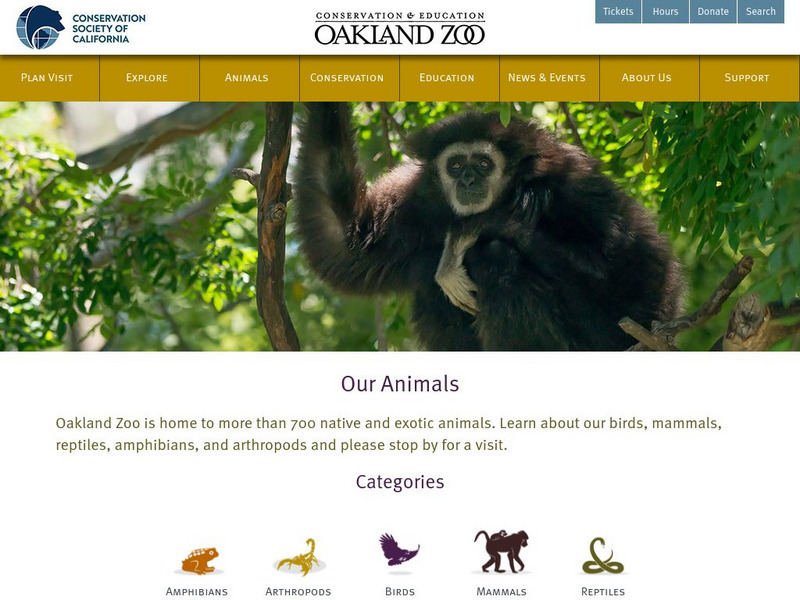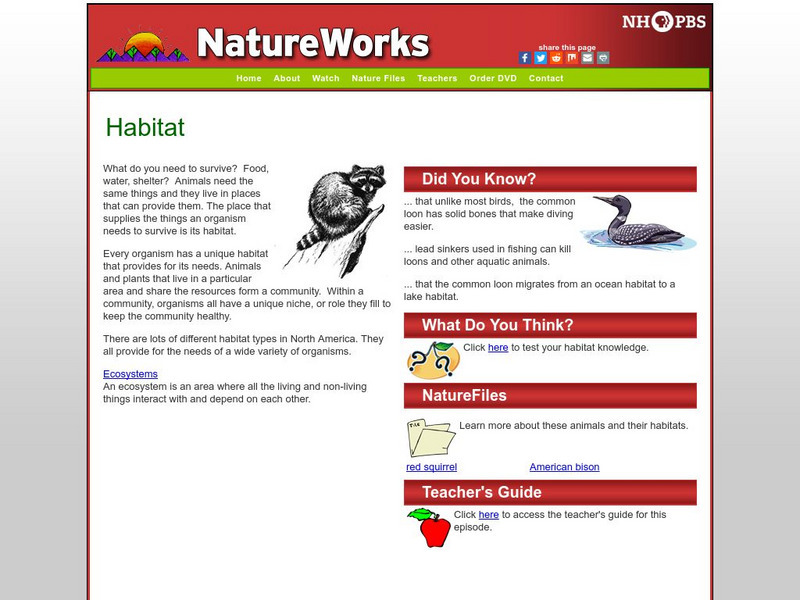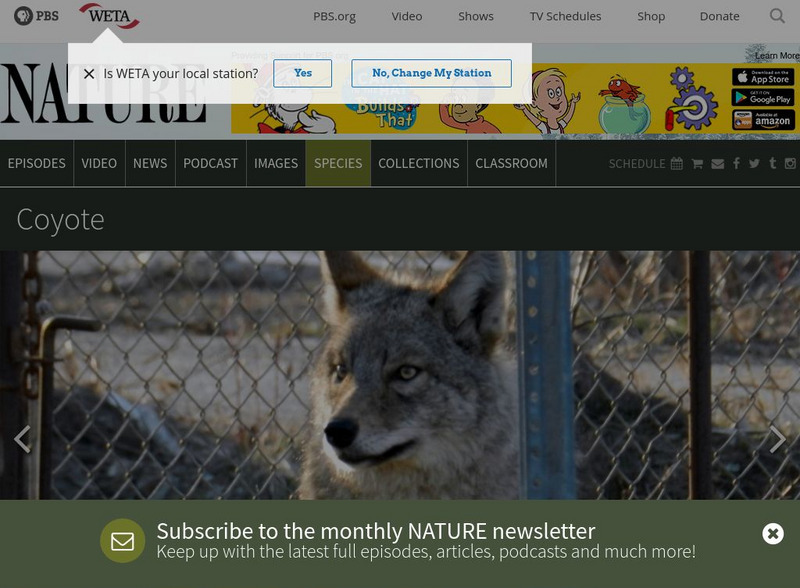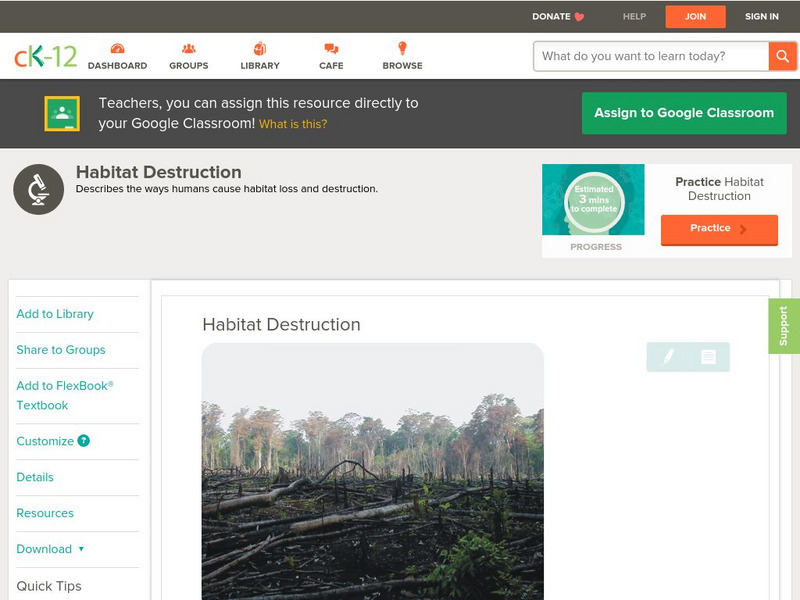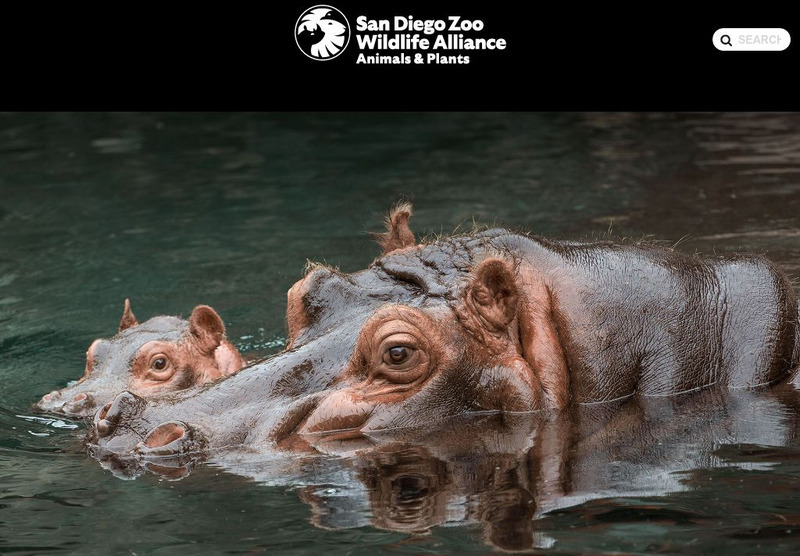Utah Education Network
Uen: Animal Adaptations
A multitude of activities provide help with understanding animal adaptations.
Scholastic
Scholastic: Study Jams! Science: Animals: Animal Adaptations
A video and a short multiple-choice quiz on the topic of animal adaptations, that look at physical and behavioral adaptations.
Scholastic
Scholastic: Dirtmeister's Science Lab: Animal Adaptations
In this lesson plan site, students will investigate what animal adaptations are and how animals are adapted to where they live. A four-step process guides the students in their investigation.
Center for Literacy and Disability Studies, University of North Carolina at Chapel Hill
Tar Heel Reeder: Animal Adaptations
Read this ebook to view examples of structural and behavioral adaptations that help animals survive.
CK-12 Foundation
Ck 12: Life Science: Learned Behavior of Animals
[Free Registration/Login may be required to access all resource tools.] Just about all human behaviors are learned. Learned behavior is behavior that occurs only after experience or practice. Learned behavior has an advantage over innate...
Oakland Zoo
Oakland Zoo: Our Animals
This comprehensive resource provides photos and animal fact sheets that list special adaptations for a wide variety of animals. See some animals with their young.
Sea World Parks & Entertainment
Sea World: Animal Bytes: Gorillas
This site from SeaWorld/Busch Gardens provides a wealth of information regarding gorillas. Content includes a focus on gorilla habitats and distribution, physical characteristics and special adaptations, senses, behavior, diet,...
PBS
Nh Pbs: Nature Works: Communication
This comprehensive site describes how communication is an adaptation that is important for survival.
PBS
Nh Pbs: Nature Works: Coloration
This competent site describes how structural adaptations help organisms survive. Deceptive and advertising coloration are explained.
Vision Learning
Visionlearning: Biology: Galapagos Finches
Interactive animation illustrates how Charles Darwin used his study of finch beaks to explain evolution. A phylogenetic tree diagram shows how the birds' color and beak shape changed over generations.
Other
Elephant Voices: Ele Quiz
Three interactive quizzes on the topics of elephant families, getures, and vocal communication. After each ten-question quiz, the correct answers are shown for review.
PBS
Nh Pbs: Nature Works: Habitat
What do you need to survive? Food, water, shelter? Animals need the same things and they live in places that can provide them. This informative site looks at the characteristics, range, habitat, food, reproduction and behavior of the red...
Penguin Science
Penguin Science: Penguins Marching Into the Classroom
Follow Adelie Penguin families as they raise their chicks. Daily pictures (November through January) from the penguin colony on Ross Island, Antarctica. are posted with data for students to keep a field journal. Inquiry classroom...
PBS
Pbs Learning Media: Tracking Polar Bears
In this interactive activity adapted from the USGS Alaska Science Center, students will track the movements of a polar bear as it migrates across the changing Arctic sea ice and compare the paths of four different polar bears.
PBS
Pbs Nature: Coyote
What do you know about coyotes? Learn more about how adaptable this animal is to new surroundings when you check out this informative resource. Explore this website to find more facts and information ranging from what these animals eat...
CK-12 Foundation
Ck 12: Life Science: Habitat Destruction
[Free Registration/Login may be required to access all resource tools.] From a human point of view, a habitat is where you live, go to school, and go to have fun. Your habitat can be altered, and you can easily adapt. Most people live in...
PBS
Pbs Learning Media: Wild in the City
Learn about how wild parakeets have adapted to city life in this WILD TV video segment.
Smithsonian Institution
National Museum of Natural History: Hall of Mammals: Pronghorn
Brief overview of the pronghorn and accompanying photos demonstrate the physical adaptations that allow this animal to be one of the fastest mammals.
Smithsonian Institution
National Museum of Natural History: Hall of Mammals: Vampire Bat
Brief overview of the vampire bat and an accompanying photo demonstrate the physical adaptations that allow this animal to eat to survive.
Science Education Resource Center at Carleton College
Serc: How Do Worms Behave?
Learners investigate how worms will interact and adapt with their environment.
Smithsonian Institution
Smithsonian National Zoo: Meet Our Animals
This site from the National Zoological Park provides extensive information about many types of animals. Just click on the category you need. Includes pictures and live web cams.
PBS
Pbs Teachers:flying Casanovas: Bowerbird Basics
Examine characteristics of bowerbirds and their bowers. Compare and contrast various styles of bowers created by bowerbirds
San Diego Zoo Global
San Diego Zoo: Hippotpotamus
This resource presents detailed information about the hippotpotamus, including several photos and an audio clip.
BBC
Bbc: Nature Wildfacts: Hippopotamus
This resource provides detailed information about hippopotamuses.





